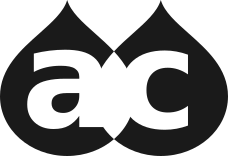The WordPress world is on fire right now. The very public fight between Matt Mullenweg and WP Engine has brought up something that's been bothering me for a while - how we contribute to open source and what that really means.
This isn't a new discussion. Dries Buytaert, Drupal's founder, has written two important posts about "makers" and "takers" in open source. First in his piece "Balancing Makers and Takers to Scale and Sustain Open Source" and more recently in "Solving the Maker-Taker Problem in Open Source". He breaks it down pretty clearly - you've got makers who actively contribute (code, docs, organizing events, whatever helps the project), and takers who use the software without giving back.
In Drupal, we've actually done something about this. We've built this really comprehensive system for recognizing and encouraging contributions. Everyone who joins Drupal.org gets a personal profile to show and share their contributions. It doesn't matter if you're writing code, creating documentation, organizing events, or mentoring newcomers - it all counts. This system helps celebrate those who give back to the project and inspires others to get involved. Both individuals and organizations can earn recognition for their contributions. It's about building a culture where contribution is valued and accessible to everyone.
But here's what's been keeping me up at night lately. As I build Palcera and look at my own history in open source, I'm seeing this third category that we need to talk about. I call them the "fakers" - those who create an appearance of contribution without truly engaging with the community's needs.
Let me explain what I mean. I've seen companies advertise having numerous Acquia-certified developers. In my view - and this is just my personal perspective after years in the ecosystem - while Acquia certifications are definitely valuable for validating knowledge, they're just one piece of the puzzle. Sometimes what's presented as "certified developers" turns out to be mostly site builder certifications. Let me be clear: site builders are absolutely crucial for our ecosystem. In fact, I'm a strong advocate for solving problems through site building rather than custom code whenever possible. But there's an important distinction here - site builder certification validates skills in configuring modules, creating content types, and managing fields, while developer certification covers deeper architectural knowledge and custom development capabilities. Both are valuable, but they serve different purposes and require different levels of expertise. What concerns me more is seeing companies promote these certifications while not engaging with Drupal's partnership program or showing up in the contribution records.
Recently, I noticed someone criticizing new Drupal initiatives without offering constructive solutions. What caught my attention was their LinkedIn profile describing them as a "core/module contributor." This is something you see increasingly often in our community - what some call "issue astroturfing." It happens in different ways: breaking up what could be a single automated code formatting change into multiple small pull requests, submitting numerous superficial changes generated by linting tools, or over-commenting on issues without adding real value.
I experienced this firsthand when my son, who was just getting started with Drupal, created his first issue - a straightforward CSS change. Overnight, the issue collected over ten comments, but only one actually addressed part of the problem we identified. While reviewing and discussing issues is crucial for our community, simply saying "yes, this is an issue" doesn't really move things forward.
Don't get me wrong - automated tools, code cleanup, and issue discussions all have their place. But when someone deliberately splits these changes into dozens of separate contributions or adds comments just to increase their visible credit count, it can actually create more work for our maintainers and make it harder to find meaningful solutions. More importantly, it misses the point of what contribution is really about - making Drupal better for everyone.
These observations make me reflect on my own journey. If you look at my profile listed above, you'll see that I've contributed to documentation, events, and continue to act as a community developer. This is one of the great things about Drupal - anyone can use their skills and strengths to contribute in meaningful ways, not just with code. While I don't code as much as I used to (my last major code contribution was a patch for Drupal 8), I've found other ways to contribute meaningfully. Currently, I'm working on the IXP Initiative, which aims to help new developers enter the Drupal ecosystem. I'm also actively involved with the Colombian Drupal Association, working to grow our local community and create opportunities for new contributors.
But I still worry. As I build Palcera, I constantly ask myself: Are we doing enough? How do we ensure we're not just going through the motions but actually adding value to the community? This isn't just impostor syndrome talking - it's a genuine concern about contributing meaningfully rather than just checking boxes.
The maker-taker dynamic isn't black and white. Most of us start as consumers of open source - learning, growing, and finding our way. Sometimes we might do just enough to look active without truly engaging, and that's a natural part of finding our place in the community. The key is to keep moving forward.
Contributing to open source isn't about the quantity of contributions or the titles we claim. It's about finding authentic ways to give back, no matter how small. Whether that's helping answer questions in issue queues, mentoring newcomers, or simply being honest about where we are in our journey - every genuine contribution moves our community forward.
So I'd like to open this up for discussion: How can we better support each other in finding meaningful ways to contribute? What helped you move from using open source to actively participating in it? How can we make the path to contribution more accessible and rewarding for everyone?
Share your thoughts and experiences. Let's work together to build a community where everyone can find their authentic way to contribute.


Add new comment